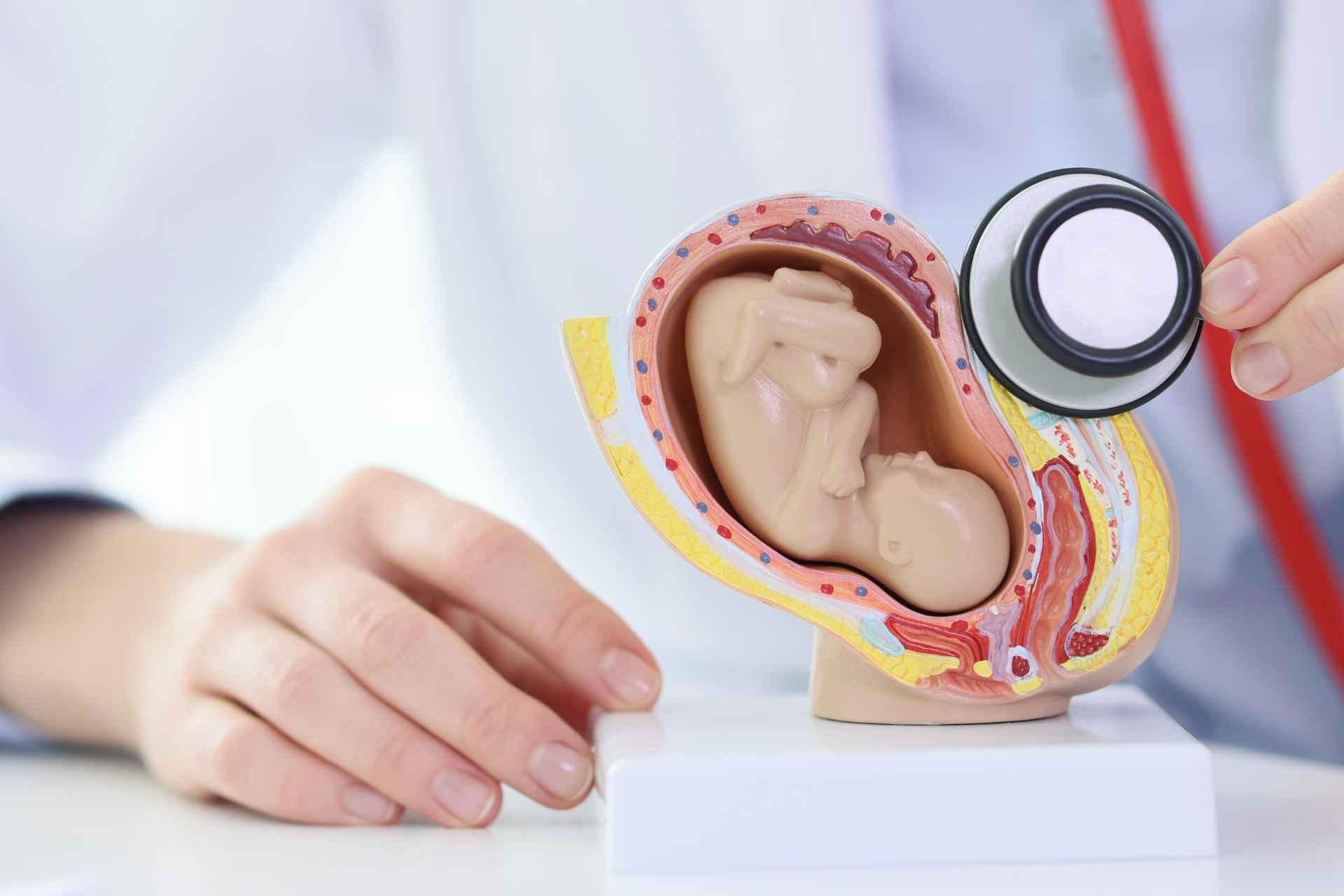What is already known
A mother’s gut bacteria have been associated with her offspring’s health later in life. But whether, and how, the maternal gut microbiota influences fetal health during pregnancy remains unknown.
What this research adds
Researchers examined the effects of a mother’s gut microbiota on the development of the placenta in mice. They found that depleting the microbiota from mothers reduces placental growth and impairs the formation of blood vessels that connect the placenta with the fetus. The microbial metabolites short-chain fatty acids stimulate the formation of capillary-like structures in cells grown in a dish and prevent abnormalities in placental vascularization in mice that lack a microbiota.
Conclusions
The findings suggest that a mother’s gut microbiota influences fetal health by promoting placental growth and vascularization.
A mother’s gut bacteria have been associated with her offspring’s health later in life, but whether, and how, the maternal gut microbiota influences fetal health during pregnancy remains unknown. Now, a study done in mice reveals that depleting the microbiota from mothers reduces placental growth and impairs the formation of blood vessels that connect the placenta with the fetus.
The findings, published in Science Advances, suggest that a mother’s gut microbiota influences fetal health by promoting placental growth and vascularization.
Scientists have known that the placenta, a temporary organ that develops during pregnancy, is responsible for delivering oxygen and nutrients from the mother to the fetus. But little is understood about the effects of the maternal gut microbiota on the development of the placenta.
To address this question, Geoffrey Pronovost at the University of California, Los Angeles, and his colleagues either reared pregnant mice as germ-free or they depleted the gut microbiota of pregnant mice by treating them with antibiotics.
Placenta abnormalities
The researchers found that depleting the maternal gut microbiota reduces placental growth. In particular, a lack of maternal microbiota led to reductions in placental volume and tissue density at the primary site for the exchange of gases and nutrients between a mother and the fetus. The team also found that, compared to controls, germ-free pregnant mice and mice lacking the gut microbiota showed decreases in fetal weight and volume.
Pregnant mice lacking a gut microbiota also showed alterations in the development of the blood vessels that connect the placenta with the fetus. The effects of the maternal microbiota were most prominent during mid-gestation, a time of rapid placental growth, the researchers found.
“These data reveal that the maternal microbiome is required for proper development of feto-placental vasculature,” the authors say.
Microbial metabolites
Next, the researchers set out to investigate whether the alterations in placenta vascularization were associated to specific metabolites in the fetal circulation. By analyzing more than 750 metabolites in the fetal blood, the team identified 30 compounds that could predict with nearly 90% accuracy whether a mother lacked the gut microbiota.
The researchers then investigated a specific class of microbial metabolites called short-chain fatty acids (SCFAs), which are produced by the bacterial fermentation of carbohydrates. SCFAs were decreased in the blood of mothers that lack a microbiota as well as in their fetuses. Analyses showed that SCFAs stimulated the formation of capillary-like structures in cells grown in a dish. The metabolites also prevented abnormalities in placental vascularization in mice lacking a microbiota.
“Advancing our understanding of how the maternal gut microbiome affects placental structure and function may inform new approaches to promote maternal and fetal health and to decrease risk for chronic diseases,” the authors say.









